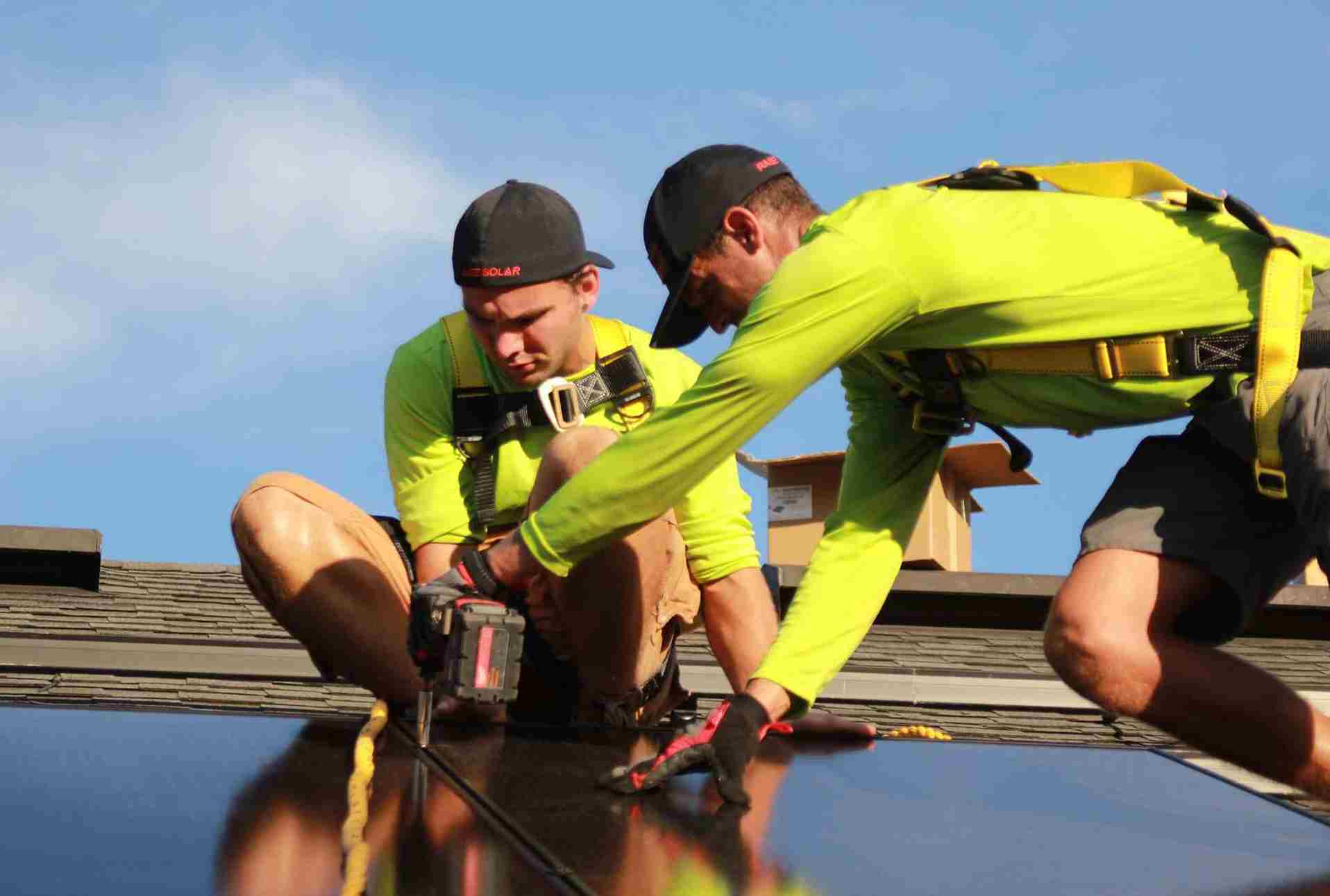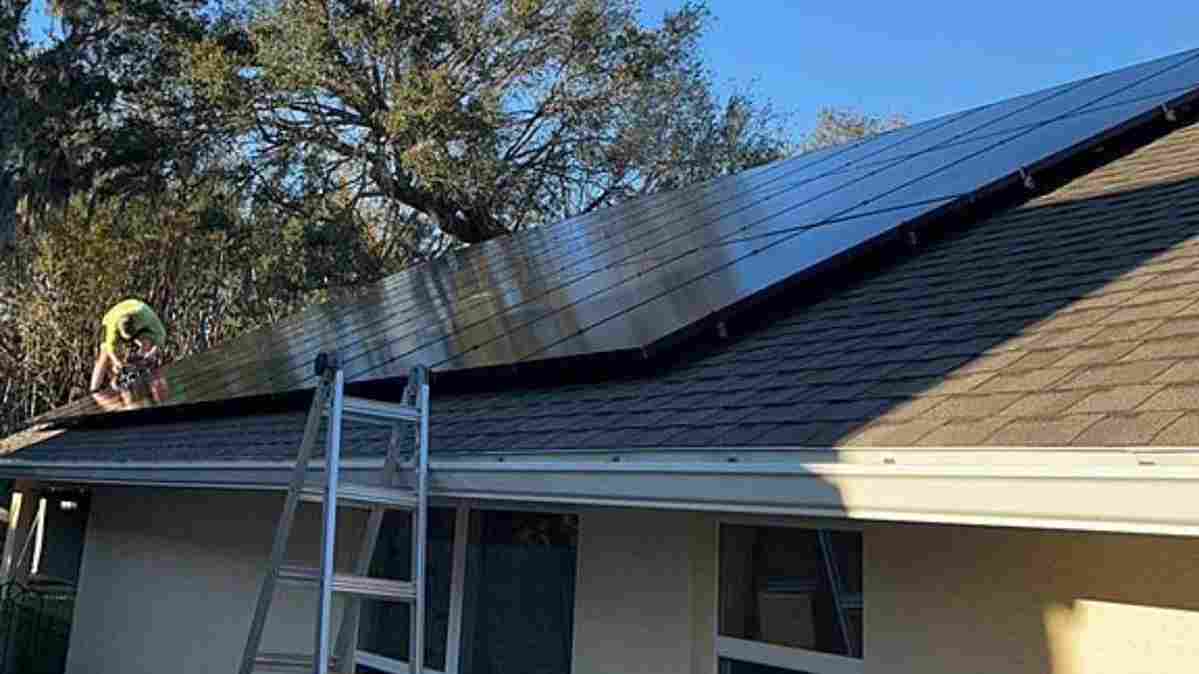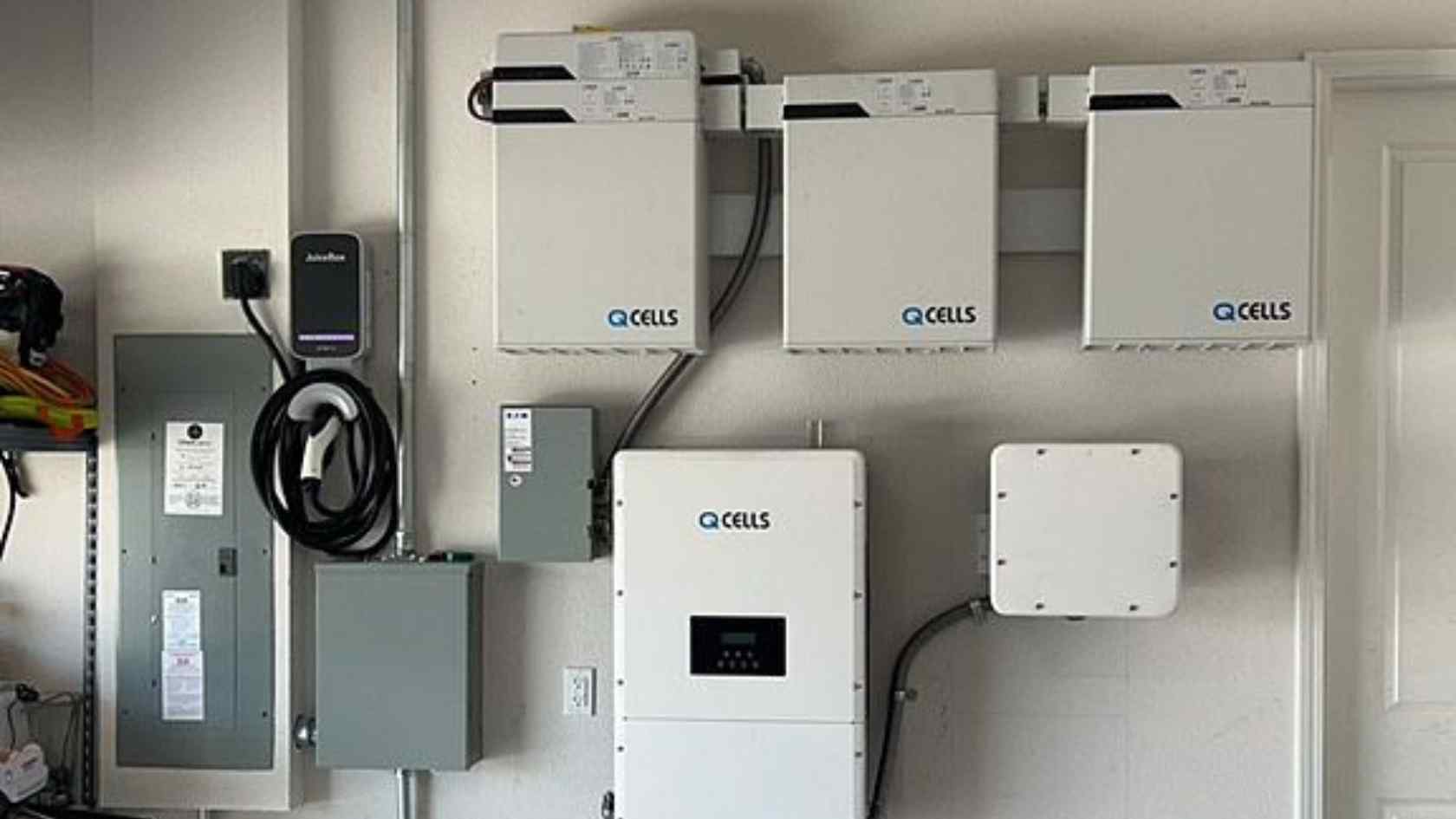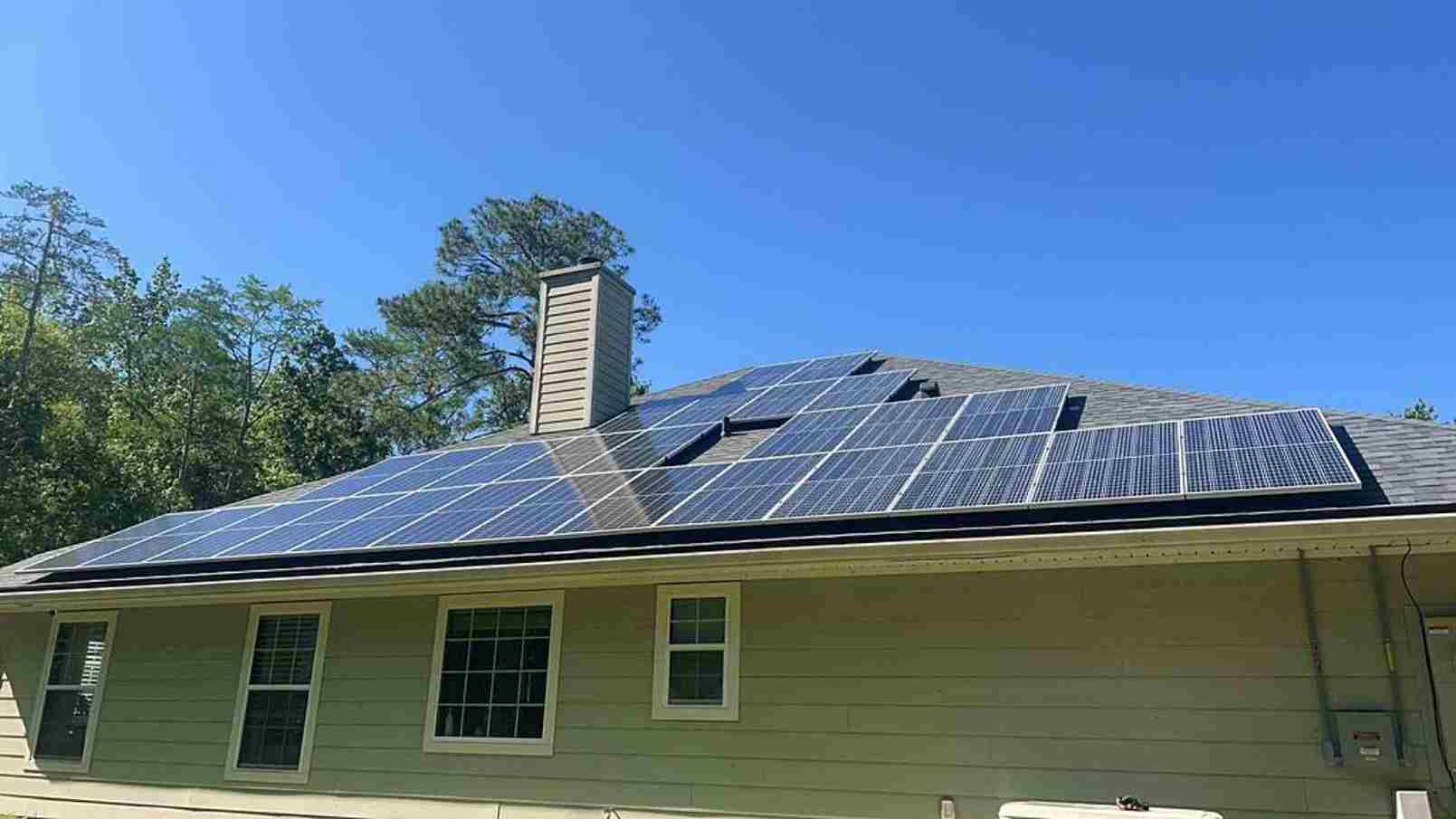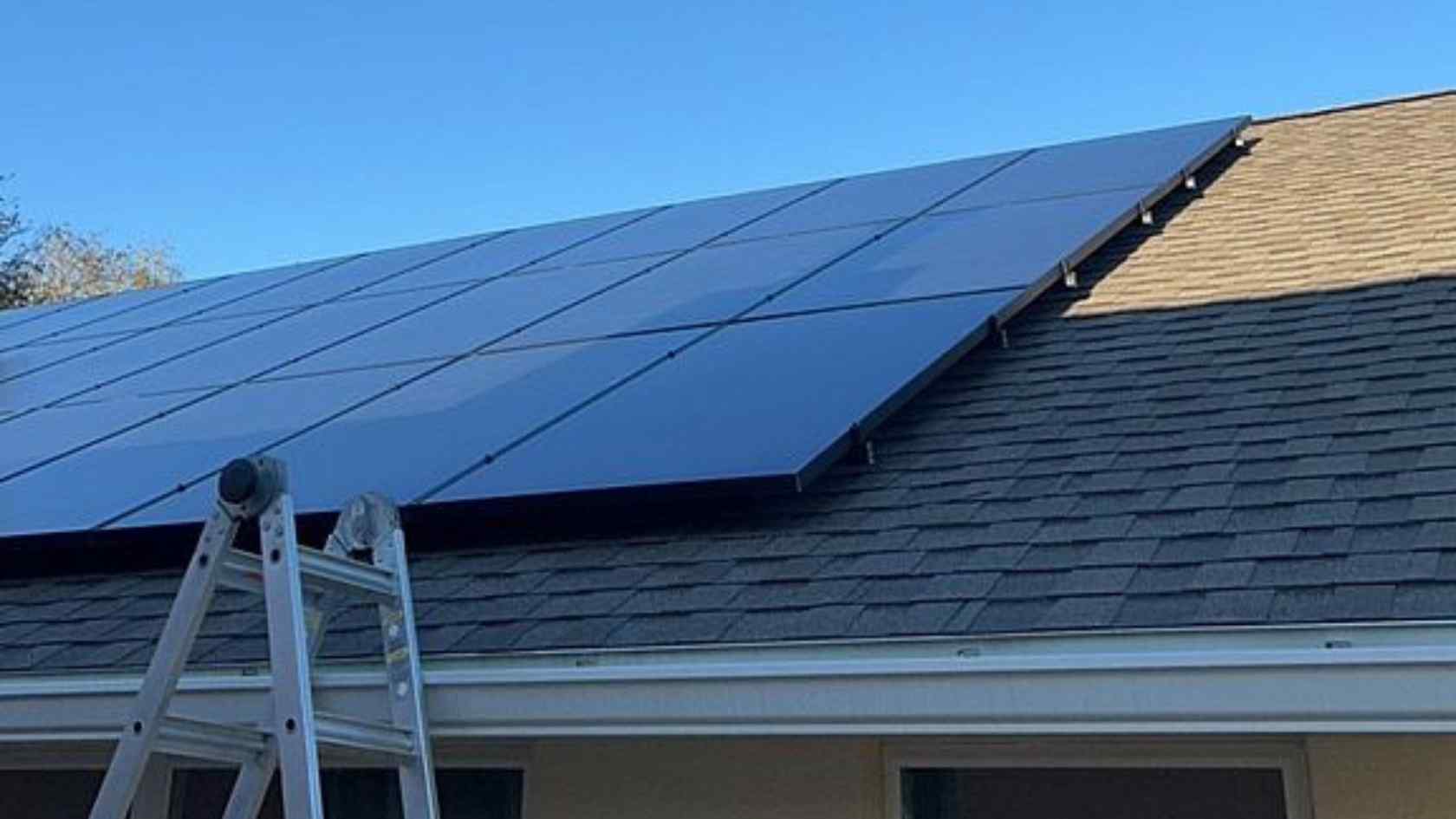In most cases, installing solar panels in Florida takes 1-3 months to complete. Most of that time is getting the city permits and approval from your utility company. If you choose to work with Raze Solar, you’ll have a dedicated Account Manager that handles this process for you.
The only thing we don’t cover in this guide is getting an initial solar panel quote and system design. If you haven’t done so already, you can schedule one with Raze Solar online now! Read on to learn about what happens in that timeframe and ways you can possibly speed it up!
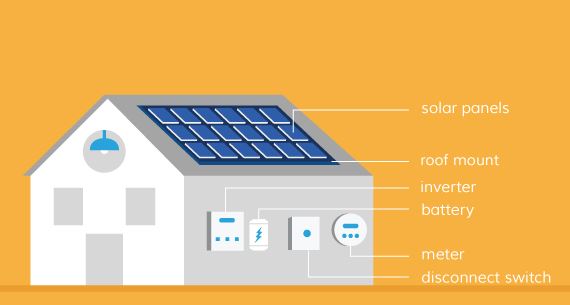
Step 1: Solar Panel Permitting & Approval
Once you’ve met with our team and had your home inspected, our experts will design a home energy system to meet your needs. Once that is completed, and an installation agreement is signed, our team will begin obtaining the solar permits. There are several organizations involved, including:
- City permitting department
- City engineer
- HOA
- Utility company
- Financing company and/or bank
In total, obtaining solar panel permits and approval can take 2-6 weeks. Due to each department operating on its own timeline, it’s often hard to gauge exactly how long the process will take. We aim to stay organized and on top of this process, so you don’t have the added stress of submitting documents and working with multiple organizations!
FAQs About Solar Permits
Why Does My City Require Solar Permits?
Most big home improvement projects, like getting your roof replaced, require city permits to be pulled, and installing solar panels is no exception. This process is essential because it protects you from having work done that does not comply with local building codes. In addition, we work on your behalf to submit all project plans and get approval from the appropriate departments.
Can My HOA Prevent Me From Installing Solar Panels?
Solar access laws ensure HOAs cannot prohibit homeowners from installing solar on their properties. However, Florida homeowners may need permission before installing their solar panels and ensure all electrical wiring is out of sight. Our team does this on your behalf. As a result, you won’t have to worry about contacting your HOA during the solar panel installation process.
Why Does Solar Permitting Take So Long?
Every local permitting office is different, and unfortunately, they all operate on their own timelines. Unfortunately, this means there are times when all we can do is call and follow up on the approval status. However, we have a dedicated team that handles this process and will keep you informed every step of the way.
Step 2: Interconnection Agreement
If you choose to remain connected to the energy grid, your utility company will require what is known as an interconnection agreement. The application includes your home’s energy usage, solar panel size and specifications, and engineering design. In some cases, there is a fee associated with the application, but we’ve got it covered.
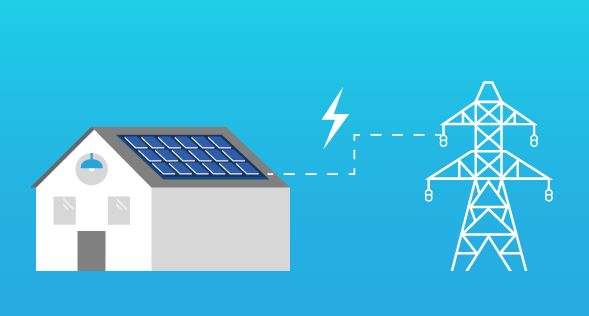
Each electric company in Florida offers varying rates for extra energy produced through their net metering programs. Requirements for each are also different. Find your utility provider below and click to learn more about their program. You can also give us a call directly at (904) 595-6835 or schedule a free solar quote to learn more!
| Florida Utility Company Name | Net Metering Program Information |
|---|---|
| Florida Power & Light | Click here |
| Clay County Electric | Click here |
| JEA | Click here |
| Beaches Energy | Click here |
FAQs About Net Metering
Can Utility Company Reject Net Metering Agreement?
Incorrectly sized systems are the top reason interconnection agreements will be rejected. Some utility companies limit the size of home energy systems connected to the grid. For example, some utility companies say a home can only generate up to 110% of their home’s current power needs through solar. This limits the number of energy credits paid out if a home produces more energy than it consumes.
Can A Solar Installer Obtain Permits For Me?
Permitting is one reason why it’s super important to work with a reputable Florida solar installer. You want to ensure your system meets your needs and complies with all local regulations. Otherwise, you may have to wait longer for permits and agreements to get approved.
Step 3: Solar Panel Installation
Once all permits are received and materials are ordered, our experienced team steps in to complete the solar panel installation. The overall process takes about 1-2 days to complete.
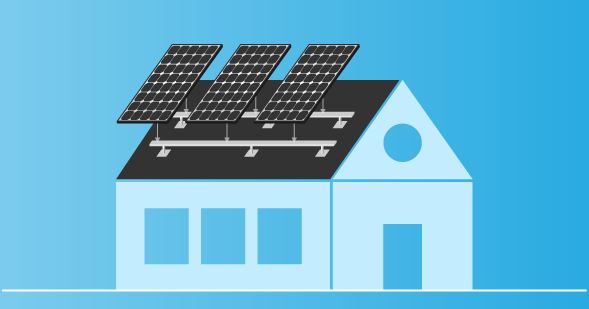
The solar panel installation process can vary between homes. For example, older homes may need electrical boxes or wiring updates to meet local building codes. We will work with you to outline all steps so you know exactly what happens on installation day.
Install Components
Installing solar panels in Florida is fairly straightforward. However, the location of the panels and hardware can vary based on energy needs and the type of roof. Along with the solar panels, there are several other components to a residential solar system, including
- Stanchions – screws that go into roof rafters to hold the solar panels in place.
- Flashing – waterproof material placed beneath the stanchion and shingle to prevent roof leaks.
- Mounting Hardware – metal rods and brackets that support solar panels.
- Inverter(s) – an electrical component that turns the sun’s energy into usable power for your home. Typically, each solar panel has its own inverter.
- Conduction System – electrical components that wire energy produced from rooftop solar panels to your home and/or battery storage.
The most important part of any solar panel installation is determining where the stanchions will go. These giant screws that hold solar panels in place must be placed in roof rafters to prevent the possibility of wind uplift. We only use hardware and components that have been strength tested for Florida weather and pass local building codes. Learn more here.
Once stanchions are installed, flashing is added to prevent any water from entering the roof system. From there, mounting hardware and brackets are installed to create the foundation for solar panels to rest on. Finally, inverters and other electrical components are added along with the solar panels to complete the conduction system and power the home.
FAQs About Installing Solar Panels
Will My Roof Be Damaged From Solar Panels?
Possible damage and future roof leaks after installing solar panels are a top fear among homeowners. As licensed roofing contractors in the state of Florida, we understand how important it is to keep roof systems intact and damage-free. During installation, our trained experts take steps to minimize damage to shingles and ensure all areas are weatherproof.
Can You Install Solar Panels Without A Contractor?
Homeowners interested in saving on solar panel installation costs often wonder if installing solar panels is a project they can take on. Without serious experience in construction and electrical fields, we wouldn’t suggest going this route. Without the proper knowledge, the margin of error is very high and could mean a failing solar system, lower energy efficiency, and potential roof damage that insurance likely won’t cover.
Do I Need To Be Home When Solar Panels Are Installed?
We think it’s a good idea for homeowners to be present during the installation process. You won’t be required to be outside, but our team may need to access your breaker box and/or wiring within your home, and we prefer you be there.
Step 4: Final Inspection
Once the solar panels are installed, expect one more round of inspections. These are required to ensure your solar energy system meets safety regulations and electrical, building, and fire codes. Some areas may require the assessment to happen during the installation. Other areas may require a final inspection before you power on your system. Either way, our team will work to ensure everything is ready and coordinated for the final inspections to occur.
FAQs About Solar Panel Inspections
What Happens If The Solar System Doesn’t Pass Final Inspection?
Personally, this has never happened to us. Based on what we know, if the solar panels are not installed correctly, the project will likely be rejected during the final inspection. This is one of the many reasons choosing a local solar company is so important! You’ll want to ensure the team completing the solar panel installation is knowledgeable and has years of experience. It’s not uncommon for national solar companies to use unskilled or under-trained laborers, leading to later problems.
Step 5: Solar Panel Permission To Operate
Once the solar panel installation process is complete and the system has passed the final inspection, we will apply for “permission to operate” from your utility company. Some projects may require a two-way energy meter that tracks the energy you produce and the energy you use to obtain the net-metering credits.
FAQs About Solar Panel PTO
What Happens If I Turn On My Solar Energy System Without Permission To Operate?
Turning on your system without permission from your utility company may result in costs/fines. Our team will work with your energy provider to obtain permission to operate so you’ll avoid this situation.
Step 6: Solar Panel Activation
Turning on and activating your solar panels is easy and only takes a few minutes. First, turn on the “PV Solar Breaker” switch in your electric panel, turn on the AC disconnect, and turn on the solar inverter. Our team will be there to help!
Step 7: Solar Panel Monitoring
After the solar panel installation process, your home will generate clean and efficient energy from the sun!
After your system is active, there are still a few things you can do to make sure you get the most out of your solar panels:
- Track the performance of your solar panels using our app. This will help you understand peak hours and when your solar panels are making the most power.
- Monitor home energy consumption. Increasing energy consumption could mean you will see changes in your electric bill. An example of this would be buying an electric vehicle. Should you need to increase electricity production, you can add additional panels later.
- Take care of your solar panels. Know how to perform solar panel maintenance and when to do it. This will increase the lifespan of your system. Access our free guide on what to expect here.
FAQs About Solar Panel Monitoring
Do my solar panels come with a performance guarantee?
Yes! Should any solar panel operate at less than peak performance the manufacture will replace the solar panel for free. This includes other equipment too like the microinverters. Contact us today to learn more.
Ready To Start The Solar Panel Installation Process?
Our team of experts at Raze Solar is ready to help! Schedule a free solar quote online or call us at (904) 595-6835. We will analyze your home energy needs and work with you to design the best home solar system to meet your needs. We look forward to helping with every step in the solar panel installation process so your experience is easy, efficient, and enjoyable.

